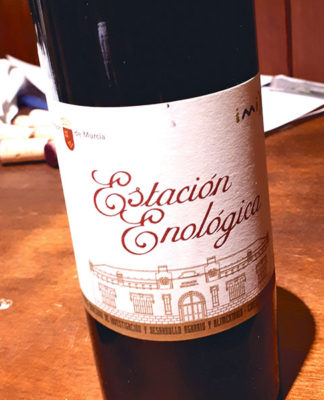Orihuela Costa
June 29
Over the past ten years, throughout the Orihuela Costa, there appears to have been a complete disregard by some owners for their community rules and statutes, town hall planning permission, and the LPH law, in carrying out incongruent extensions and modifications to their properties.
Some of these extensions clearly prejudice the rights of their neighbours to light, views and privacy, adversely affect the aesthetic appearance of the urbanisation, lowering the resale value and marketability of adjacent properties.
Sometimes these obtrusive modifications are the result of ignorance of the rules, which may differ from other countries, or perhaps due to misleading advice from a double-glazing salesman with a burning ambition to glaze over the entire Orihuela Costa. Or very occasionally, due to an owner’s completely selfish and arrogant disregard for the rights of his neighbours, simply because he thinks he can get away with it here, in Spain.
The community rules and statutes are provided to ensure that everyone’s rights are respected and not only include minor rules, which apply to the swimming pool etc., but also contain clauses relating to major issues like property alterations, which are taken directly from the Spanish LPH law applying to urbanisations governed by a community of owners and are typically presented, as follows:
‘Structural alterations can be carried out by owners provided that:
(a) Such alterations do not extend beyond the existing profile of the building.
(b) Such alterations do not detract from the current general appearance of the urbanisation.
(c) Such works are carried out by a competent/licensed tradesman.
(d) Such works have been authorized by the community of property owners and planning permission has been obtained from the town hall.’
Unfortunately, the clause in Article 7 of the LPH relating to modifications, stating that structural alterations and modifications ‘must not prejudice the rights of another owner’, is often omitted from the Community Rules and this is where problems occur, because this clause of the LPH continues to be applied additionally, to protect the rights of all owners.
Many community rules and statutes already include the requirement to firstly obtain the written approval of all the neighbours most affected, ensuring that there is no prejudice to their neighbour’s rights arising from the proposed modification, before submission for approval at the AGM.
By including this simple step in the Community’s authorization procedure avoids the situation, where owners not directly affected, vote at the AGM to approve a modification, which may then prejudice the rights of an owner of a property immediately adjoining the proposed works.
Although putting the proposal for the modification/extension directly to the vote at an AGM may be perceived by some to be ‘democratic’, this action can sometimes be considered in Spanish law as being ‘abusive to the rights of an owner’ and many prejudicial modifications have already been successfully contested by individual owners in the Spanish courts under Article 7 of the LPH.
Also, owners may be unaware that Article 12 of the LPH requires the unanimous approval by all the owners at an AGM to increase the habitable area of a property within an urbanisation, since this alters the quotas by proportion.
All habitable extensions not only consume the allocated limit of ‘buildability’ defined in the master ‘escritura’ for the entire urbanisation, but also the distribution of participation shares for the annual quota, which is based on the habitable surface area of each property as a proportion of the total sum of the habitable surface areas of all the properties within the urbanisation.
Violations of Article 12 have also been successfully contested in the Spanish courts by individual owners.
Also, the Spanish courts appear to consider the architectural features of an urbanisation as ‘common elements’, for which any alteration arising from the modification, requires unanimous approval at an AGM.
Throughout the Orihuela Costa urbanisations, there has been a favela-like proliferation of glass conservatories, pergolas, gazebos and awnings with permanent frameworks covering balconies, ground-floor and roof terraces, together with oversized, obtrusive roof mounted satellite dishes, detracting from the original aesthetic appearance and blighting the skyline.
Community executive committees, administrators and the town hall have clearly failed to apply and enforce community rules and the LPH law to avoid prejudicing the rights of owners by preventing the degradation of the common architectural features of some of our urbanisations.
Trying to get the town hall, to address these issues can take years, since they are understaffed, overwhelmed by the number of urbanisations and although they often react by fining an owner for building infractions, any enforcement leading to demolition, then awaits a political decision, which seldom happens.
Often the community executive will not act at all due to the prevailing ‘patio politics’ and occasionally, the President’s personal relationships and partiality.
However, there is an effective remedy in Spanish law, where any owner can take legal action through the Spanish courts against a president, community of owners, administrator or any other owner, who carried our any modification, which is prejudicial to his rights to light, views or privacy, has ruined the original architectural features, or failed to allocate the distribution of participation shares for the annual quota proportionally and according to the habitable surface area.
The cost of a good Spanish barrister to prosecute a case through the Spanish courts is around €1,500, most of which is reimbursed by the defendant, if you are successful.
In fact, many Spanish law firms are now so confident of success, they are advertising their legal representation on a ‘no win – no fee’ basis.
Sometimes, a letter from a barrister pointing out the ways in which the offending modification has prejudiced the rights of an owner and the threat of litigation under Article 7 of the LPH may be sufficient to ensure that the neighbour will restore his property to its original condition, without attempting to defend his unreasonable actions in court.
You may be surprised to learn, that in seeking to protect your rights as an owner in accordance with Article 7 of the LPH, you are pushing against an open door and the optimism shown by the barrister is supported by the Spanish jurisprudence, which strongly favours the rights of the plaintiff.
You will almost certainly win, since there are so many similar cases that have been successful throughout Spain, to which the judge refers before reaching his verdict, thereby ensuring that he is very unlikely to have his judgment overturned on appeal.
With the support of a registered English/Spanish language translator, the trial is not such an intimidating ordeal, since Spanish judges are courteous, respectful, focussed and impartial.
The whole process is surprisingly quick and normally completed within 6 months of initiating proceedings, with the court’s notification containing the Judge’s verdict issued within days of the hearing, ordering the defendant to restore the building to its original state and pay the costs of the proceedings.
In taking the matter to court, you may not endear yourself to a very small minority of owners, who may also have been contemplating carrying out similar works, but a great many more will empathise and support you, acknowledging your moral courage in standing up for yourself.
You will certainly be respected for taking the abuse of your rights to the Spanish courts and less scrupulous neighbours are very unlikely to disregard your rights and those of other neighbours in the future.
Having experienced this situation at first hand, I have the greatest respect for Spanish legal process and really, it’s all about respect for the Spanish LPH Law, the community rules and statutes, town hall planning rules and of course, mutual respect for your neighbours!
Sr Propietario Respetuoso



































